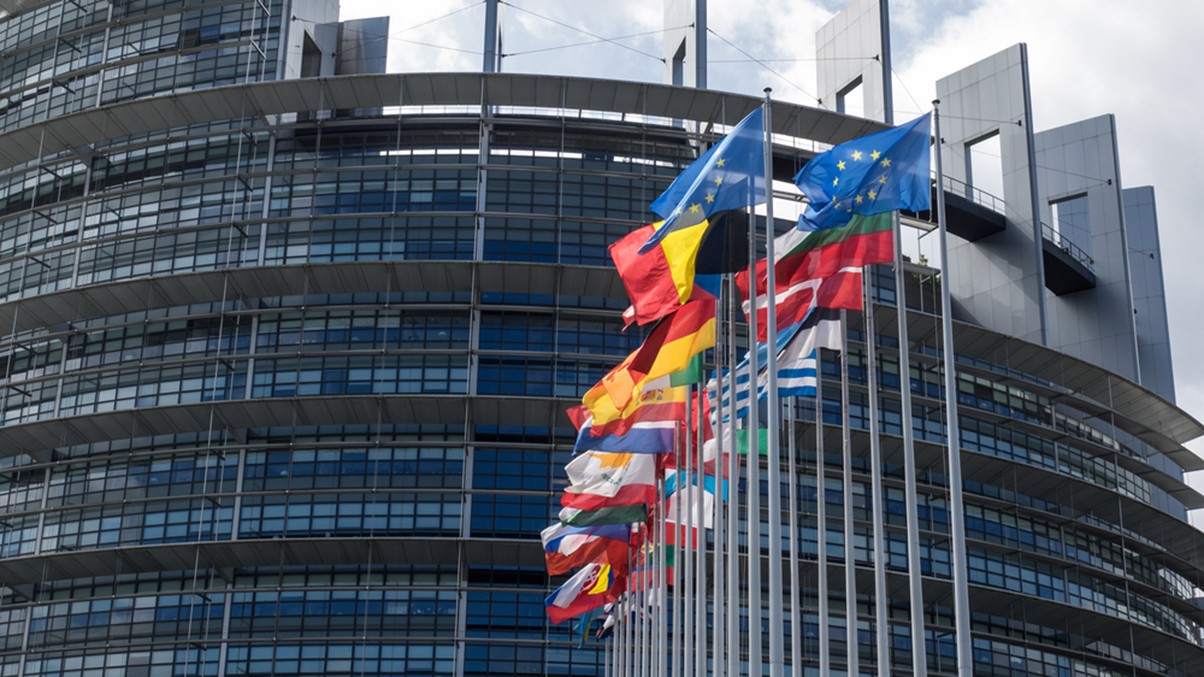Stewarts once again supported the APIL Accidents Abroad conference, which this year took place on 2 December 2021. Partners Chris Deacon and Peter Neenan from the firm’s Aviation and International Injury department both spoke at the event.
Topics discussed at the conference included landmark decisions and developments in international injury and travel litigation against the backdrop of the world’s travel and tourism industry continuing to face the challenge of the global pandemic.
Chris introduced the conference in his capacity as coordinator of the APIL International Special Interest Group. He welcomed more than 80 delegates to the hybrid format, which successfully saw speakers and participants interact through a combination of in-person and video-link attendance.
Setting the scene for the conference programme, Chris noted that it had been a year of landmark developments: “We finally Brexited on New Year’s Eve 2020, Lady Brownlie and Mrs X saw justice done in the UK Supreme Court after a decade or more each of litigation, and the pandemic has continued to cause uncertainty in our day-to-day lives. However, there was cause for optimism as summer rolled into autumn, and many returned to their love of international travel for the first time in over 18 months.”
Jurisdiction, enforcement and the UK Supreme Court decision in Brownlie v FS Cairo
In October 2021, the UK Supreme Court gave its final judgment in the long-running case of Brownlie v FS Cairo. Leading counsel for the claimant, Sarah Crowther QC, gave an insight into the decision while reviewing the latest developments in jurisdiction. The claim arose from a fatal road traffic accident in Egypt in 2010 in which Lady Brownlie was seriously injured and tragically lost her husband, the eminent public international law specialist Sir Ian Brownlie. The accident occurred while Lady Brownlie and her family were travelling in a limousine, which she had booked via the concierge of the Four Seasons Hotel, Cairo.
More than a decade after the accident, the Supreme Court determined that Lady Brownlie could bring her claim for damages in England. The majority decided that a claimant who suffers the ongoing effects of an accident that occurred overseas could bring proceedings in the courts of England and Wales on returning home. The claimant must be able to show that England and Wales is the most appropriate place for the case to be determined. The decision widens the scope for tourists or workers who ordinarily live in England and Wales to bring proceedings in their home courts following a serious accident abroad.
In Brownlie, the Supreme Court also clarified the requirements on pleading a foreign law when this applies to a claim and the approach to be taken where there is no evidence of the foreign law before the court. The Supreme Court determined that a party can rely on the presumption that the foreign law is the same as English law if there is no evidence before the court (usually in the form of a foreign lawyer’s expert report) as to the content of the foreign applicable law.
The decision in Brownlie has taken on an importance that was not contemplated when the litigation started. Following Brexit, the scope for UK-based serious injury victims to bring proceedings in their home courts has narrowed significantly. The widening of what is known as the “tort gateway” by the Supreme Court has the potential to ensure continued access to justice for individuals suffering life-changing injuries overseas. However, the decision does not assist on the issue of enforcement. There is a risk that a judgment from the courts of England and Wales might not be recognised and enforceable in the 27 member states of the European Union.
James Beeton of 12 King’s Bench Walk chaired a panel of speakers from across Europe looking at the risks of enforcement post-Brexit. He was joined by Karel Roynette from France, Ana Romero from Spain and Silina Pavlakis from Greece, who provided a detailed insight into the procedure for enforcing a UK judgment in their home courts.
Whereas enforcement used to be automatic under the European regime pre-Brexit, the procedure will now vary depending on the law of the country in which a claimant is seeking to enforce a judgment. The procedure is likely to be more costly and time-consuming, with a risk that a foreign court will refuse to enforce a UK judgment. The panel cautioned on the importance of specialist advice from the outset before proceedings are started in England and Wales to ensure that at every step, the claimant is maximising the prospect of being able to enforce a judgment in the courts of the 27 member states.
Montreal Convention: the case for reform
Before lunch, Peter changed the focus to aviation and considered the question: “Has the Montreal Convention achieved its stated goal of unification?”
By reflecting on the language used by delegates throughout the travaux preparatoires (ie the official record of the negotiations of the convention) to indicate their intentions, Peter divided this question into two sub-questions:
- “Has the Montreal Convention replaced the Warsaw System as the applicable regime governing carrier liability globally?”; and,
- “Has the Montreal Convention achieved legal certainty in its application and interpretation as between different courts around the world?”
In relation to the first question, Peter analysed accident statistics over the past 10-years to show that although ratification of the Montreal Convention has been excellent (particularly in the last five years) when major aviation accidents happen, the Montreal Convention is rarely the governing liability regime. (In the past 10 years it has been the governing regime in only 26% of accidents.) This is both a consequence of where international accidents are happening and the number of aviation accidents that occur on domestic carriage in jurisdictions that have not domesticated the Montreal Convention.
On the second question, Peter took the attendees on a whistlestop tour of conflicting decisions worldwide covering the subjects of pre-emption, jurisdiction and the definition of “accident”. He concluded with reflections and cautions following the recent Silverman v Ryanair case on applicable law.
Package travel and the UK Supreme Court decision in X v Kuoni
The afternoon programme started with the legal team for the claimant in X v Kuoni, James Riley and Katherine Deal QC, focusing on the latest developments in package travel. They considered the outcome of this long-running case, which reached the Supreme Court for a final decision over a decade after the incident giving rise to the claim. At the end of July 2021, the Supreme Court ensured a high degree of consumer protection when interpreting the package travel regulations, confirming that it is necessary to take a broad view of the obligations owed by a tour operator to its holidaymakers.
James and Katherine also reignited the debate on the case for tour operators selling package holidays to hold compulsory liability insurance. This would ensure that holidaymakers had an effective means of redress if the tour operator is insolvent and cannot meet its liability to a seriously injured claimant under the package travel regulations.
Accommodation claims and the roulette of the applicable law
Chris took to the podium again to close the conference with a comparative law look at how claims for accommodation following life-changing injury are dealt with under different European laws.
He considered the position in France, Spain and Poland, comparing and contrasting with the English law approach following the Court of Appeal’s decision in Swift v Carpenter.
Chris noted that other European legal systems, notably France, appear less concerned with the prospect of a claimant’s estate receiving a windfall upon their death if they are compensated for the full capital cost of a new purchase property. He identified that claimants injured in identical factual circumstances could see a massive difference in their compensation depending on which law applies to their claim. He gave the example of a claimant who requires £1.2m to purchase and adapt a property to meet their disability-related needs. The shortfall in damages could range from zero to just over a worryingly inadequate £1m depending on which law applies. Chris provided tips on how a foreign law might be interpreted and applied to maximise the recovery for a claimant living in England with the associated costs of living.
Summary
Other talks during the day included a look at employers’ liability in an international context by Sarah Prager of 1 Chancery Lane and a review of the ongoing litigation in Griffiths v TUI, which deals with an important point of civil procedure when a party seeks to rely on uncontroverted expert evidence.
12 King’s Bench Walk sponsored the conference, with two of their specialist cross-border barristers, Philip Mead and Charley Turton, chairing the conference.
Now in its sixth year, the Accidents Abroad conference has become a key annual gathering for lawyers specialising in cross-border personal injury claims, as well as experts who receive instructions in this specialist area of law.
You can find further information regarding our expertise, experience and team on our International Injury page.
If you require assistance from our team, please contact us.
Subscribe – In order to receive our news straight to your inbox, subscribe here. Our newsletters are sent no more than once a month.






